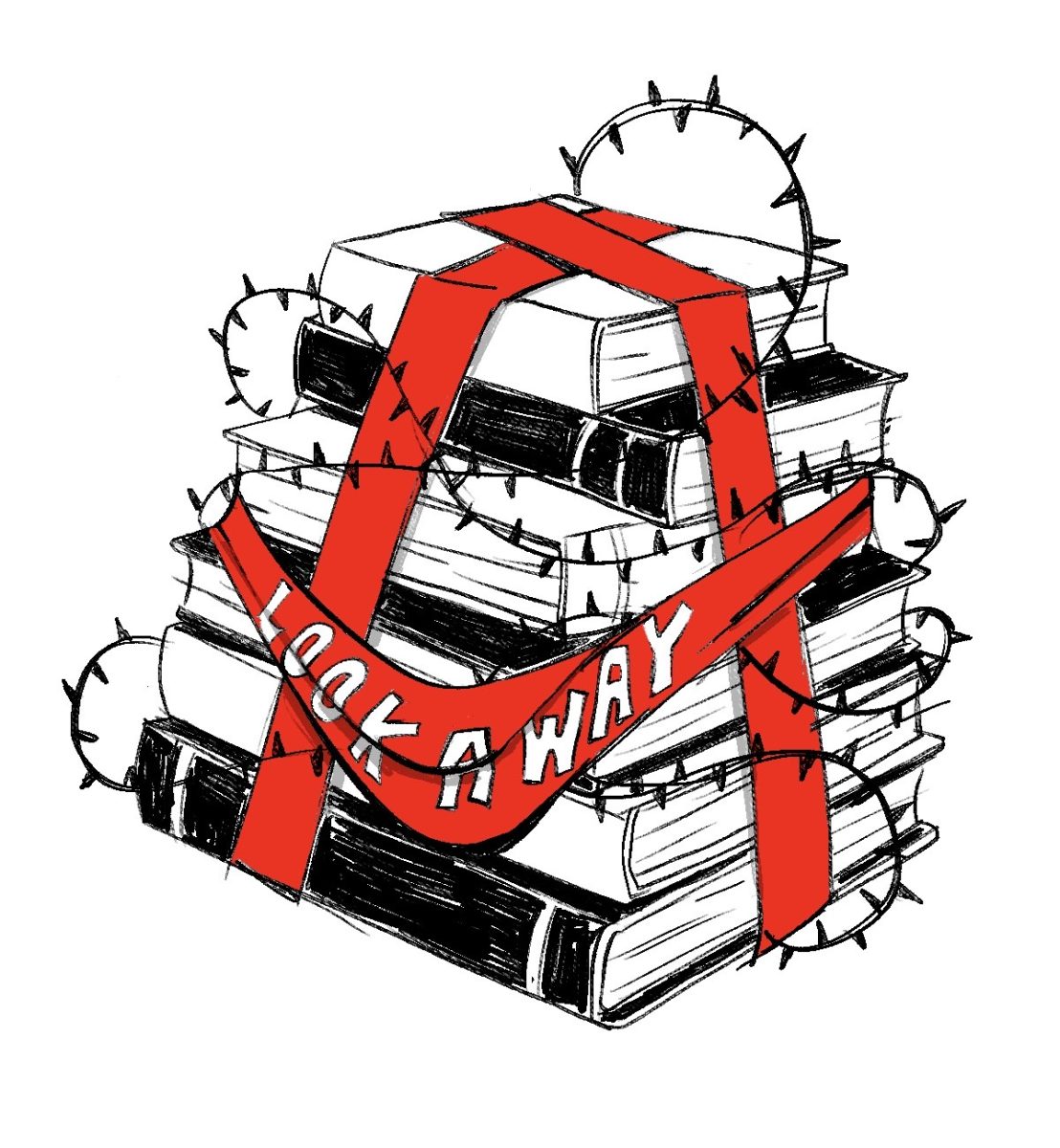What is book banning?
Book banning, AKA book censorship, “is the act of some authority taking measures to suppress ideas and information within a book. Censors typically identify as either a concerned parent, community members who react to a text without reading, or local or national organizations” (Wikipedia).
Book banning might happen if information in a book is considered too violent, sexual, or offensive. Other reasons books might be censored is for containing ideas against a religion, government, or a society’s philosophy.
For example, Harry Potter has been banned off and on in certain places for promoting satanism and witchcraft, and for having “anti-family themes” (Maryville Pawprint).
 (wordsrated.com)
(wordsrated.com)
As seen in the chart, India has more banned books than any other country. Some of the censored books criticize major religions of India or portray people like Gandhi or Nehru poorly (Wikipedia, 4).
But what does book banning look like in the US? There are no federal book bans here, but individual states and school districts have banned books. Book banning can go in a couple different directions. Mostly, school districts have censored books containing graphic violence, sexual content, mental health issues, substance use, and foul language. These districts have argued that there is not a place for these books in schools, and they will not be teaching with those books.
But book banning has gone other directions before. For example, Florida’s governor Ron DeSantis passed a law dubbed the “Don’t Say Gay Law” in March of 2022. “Don’t Say Gay” was the name critics gave the law, that prohibits schools from talking about sexual orientation and gender identity in lower elementary school (NPR, Florida’s governor signs controversial law opponents dubbed ‘Don’t Say Gay’). After this law was passed, And Tango Makes Three, a children’s book following a gay penguin couple and their adopted baby penguin, was banned from Florida schools. The authors Justin Richardson and Peter Parnell challenged the book being banned. They argued that book banning went against their First Amendment rights of freedom of speech and press. Others found it bonkers that Florida was censoring penguins.
Other authors have also fought against their books being banned in various districts. To name a few: Judy Blume (Are You There God? It’s Me, Margaret, among other books), Suzanne Collins (The Hunger Games series), and Kaled Housseini (Kite Runner and A Thousand Splendid Suns) (info from the Nebraska Examiner). Amanda Gorman’s poem The Hill We Climb was also banned in a Florida school for not being educational, and for having “indirect hate speech” (NPR). This ban seemed pointless: why ban a poem when you can choose to just not read or teach it? Plenty of texts aren’t educational, but they don’t need to be censored for it.
But what about our own school? While no books have been banned at West Seattle, there is still a conversation around controversial books.
I asked my language arts teacher Mr. Glover about controversy around books he’s taught, and we talked about two books he teaches: The Things They Carried, by Tim O’Brien, and The Absolutely True Diary of a Part-Time Indian, by Sherman Alexie.
The first book, The Things They Carried, is about an American soldier during the Vietnam war. The book has graphic violence and a scene where in the character’s imagination he sexually assaults and stalks a woman. The Things They Carried was problematic and disturbing enough that Glover stopped teaching it.
Mr. Glover told me that he would never force a student to read something that they are uncomfortable with, but he does not believe in book banning culture. He believes that there are more drawbacks than good things that come with book censorship. If somebody doesn’t want to be reading a book, whether they find it offensive or triggering, it is up to that individual to decide they don’t want to read it themselves, and it should not be something that is decided for everyone.
The second book Mr. Glover had mentioned was The Absolutely True Diary of a Part-Time Indian. This book is read in his ELA 9 class. The book contains violence, substance use, offensive language, racism, sexual references, and suicide. The author, Sherman Alexie has also been accused of sexual harassment/assault. He was accused of cheating on his wife and abusing his power as a famous writer to seduce multiple women. A 2018 NPR article says that Alexie lured women into “uncomfortable sexual situations” and made “unwanted sexual advances”. These discoveries about the author himself might make the sexual references and such in the book more uncomfortable for readers.
So, how should students and teachers approach reading a problematic book for class?
Mr. Glover says that he always tries to provide necessary trigger warnings. When he taught The Things They Carried, he made sure everyone knew what disturbing things were to come in case someone wouldn’t feel comfortable reading parts of the book. As someone in his language arts class who is reading The Absolutely True Diary of a Part-Time Indian, I know that he had made sure that us students were well informed and understood that Sherman Alexie was problematic.
Some may consider the pros and cons of teaching these books. While some books have educational values that check off different learning standards, do books with these controversial, disturbing, and problematic topics have a place in schools?
It’s really up to what students are comfortable with. If complaints pile up, the book might cease to be taught that year, or for that course.



